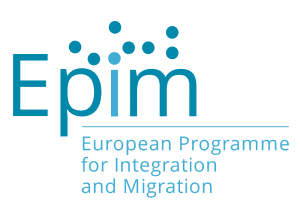A Holistic and Cost-Effective Alternative to Detention
Between June 2020 and June 2022, King’s Arms Project (KAP) – a UK-based charity working to tackle homelessness and social isolation – provided holistic support to people without immigration status through an Alternative to Detention (ATD) Pilot known as the Refugee and Migrant Advice Service.
KAP’s pilot was developed in collaboration with the UK Home Office and UNHCR, and followed the first pilot in the Community Engagement Pilot (CEP) series, Action Access, delivered by Action Foundation. The CEP series was launched in 2019 with the aim of exploring approaches to supporting people to resolve their immigration status in the community.
According to UK government figures, in the year ending June 2023, of the 20,563 individuals who left immigration detention, 75% were granted bail and therefore re-entered the community. This highlights that many people are unnecessarily enduring the distress of being detained. Furthermore, in June 2023, 569 people had been in detention for upwards of 6 months, with 27% of them detained for a year or more. Given the well-documented detrimental impact of immigration detention on health, KAP is deeply concerned by both the number of people subjected to detention and the extended duration some spend in these conditions.
In contrast to EU member states, UK domestic law permits indefinite detention. The Refugee and Migrant Advice Service presents a compassionate, trauma-informed and cost-effective alternative to detention. If this were made standard practice, many more people could be helped to resolve their immigration cases whilst living in the community, thus avoiding detention.
Pilot Recruitment
The Home Office specified several eligibility criteria for participants, one of which required them to have a stable home address. Pilot participants had to be 18-years-old or over and were recruited from across Bedford, Milton Keynes, Northampton and Luton using correspondence sent to them by the Home Office. Individuals were required to contact KAP themselves to enrol on the pilot using a dedicated telephone number, email address or webform included in the correspondence received. Initially, some individuals were suspicious of the contact from the Home Office or were concerned that the pilot programme might be a scam.
Immigration Advice
On joining the pilot, many participants reported that they had previously felt overwhelmed and unsure of where to turn for help. One of the key objectives of the pilot was to address this by assisting people to understand their immigration options. Participants benefited from expert immigration advice offered by qualified solicitors, spread across three meetings. This unique three-part legal model allowed participants to meet their chosen solicitor and to switch to another if they so desired following the first meeting. The second and third meetings were dedicated to understanding the specifics of their immigration situation and exploring available options. With the information provided, participants were empowered to make choices about their own futures. In total, 65 pilot participants received legal advice, 80% of whom found that they had an option to regularise their status.
Holistic casework
Holistic casework was central to the success of the pilot. Many participants had been living in limbo, without immigration status in the UK, for 10 years or more. As a result, they presented a broad range of needs. Each participant was allocated a dedicated caseworker who played a crucial role in providing them with information about their rights and facilitating access to various services and support. For instance, some participants were unaware of their entitlement to primary healthcare and were hesitant to register with a local GP surgery. With the reassurance and guidance provided by caseworkers, these concerns were effectively addressed, enabling participants to exercise their rights and access the necessary healthcare services.
As the pilot took place during the Covid-19 pandemic, many meetings were held remotely rather than the originally intended in-person meetings. Regular meetings were essential to ensuring that the needs of individuals were effectively addressed and to provide the stability for participants to effectively navigate the complexity of their situations. The intensity of support provided depended on the needs of each person. Factors such as safeguarding concerns, the participant’s level of spoken and written English, and mental health were all considered.
Evaluation Findings
In August 2023, UNHCR published an evaluation to assess the effectiveness of the pilot. The independent evaluation was conducted by NatCen and found that:
- The person-centred approach delivered through caseworkers enhanced the well-being and self-esteem of pilot participants;
- The combination of holistic casework and legal advice provided pilot participants with the essential stability needed to actively engage with complex immigration issues;
- Many participants reported that they had a better understanding of their immigration options than before joining the pilot;
- Civil society organisations and government institutions can work together to design and deliver an effective and humane alternative to detention;
- The pilot was cost-effective. It would have been 66% more expensive for participants to have been detained.
The findings captured in UNHCR’s evaluation of the pilot contribute to a growing body of evidence that trauma-informed and person-centred approaches to immigration management are cost-effective, dignifying and beneficial. This highlights that, in many cases, detaining people is a political choice and not a necessity. KAP now calls for the model used for the Refugee and Migrant Service to be made standard practice.
Written by Laura Alshaltan (Refugee and Migrant Service Manager, King’s Arms Project)





